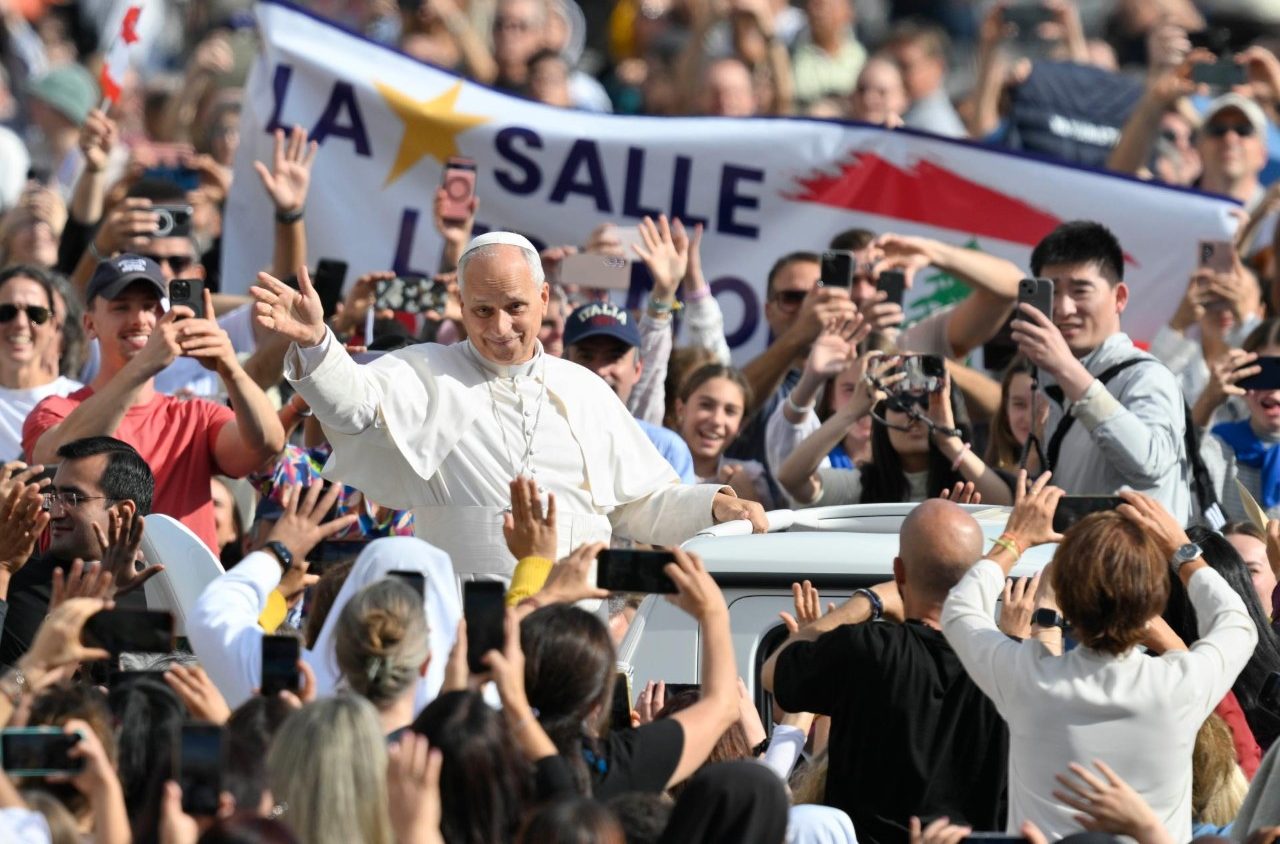The Pope meets with 15,000 teachers and students in St. Peter’s Square in Rome for the Jubilee of the World of Education and calls on teachers to connect with the “inner selves” of their students, because without a profound encounter with them, “any educational proposal is doomed to failure.”
By Fabrice Bagendekere, SJ
It was on his own experience as a teacher at Augustinian educational institutions that Pope Leo XIV based his address to educators from around the world, gathered in St Peter’s Square for the Jubilee of the World of Education.
Interior life, unity, love, and joy, four key aspects of the doctrine of Saint Thomas Aquinas: these are, according to the Augustinian Pope, the cornerstones of Christian education.
In his address, the Pope urged that these become the “key elements” of educational practice, which he believes helps to embody the face of “the Church (…) Mother and Teacher (…) for the many pupils and students to whose education you dedicate yourselves.”
Deep human encounter
Drawing on a saying of Saint Augustine — “the sound of our words strikes the ears, but the true Teacher is within” — the Pope reminded his audience that “it is a mistake to think that beautiful words or well-equipped classrooms, laboratories, and libraries are enough to teach.”
“These are merely means and physical spaces, useful indeed, but the Teacher is within,” he said, stressing that truth does not flow through sounds, walls, or corridors, but through “the deep encounter between persons — without which every educational proposal is doomed to fail.”
Interiority
Continuing this reflection, the Pope noted that students today need help to “come into contact with their inner selves,” emphasizing the challenge of superficiality in a world “dominated by screens and technological filters.” He also pointed out that even educators—“often tired and burdened with bureaucratic tasks”—run the real risk of forgetting the cor ad cor loquitur (“heart speaks to heart”), an expression by Saint John Henry Newman that echoes Augustine’s own exhortation: “Do not look outside yourself. Return to yourself. The truth dwells within.”
According to the Pope, these two expressions invite us to see education as “a journey on which teachers and learners walk together — aware that their search is never in vain, but also that they must continue to seek even after they have found.”
“Only this humble and shared effort,” he said, “which in the school setting takes the form of an educational project, can bring students and teachers closer to the truth.”
Unity
On the theme of unity, the Pope—whose pontifical motto, In Illo uno unum est (“In the One, we are one”), centers on this very concept —stated that “it is only in Christ that we truly find unity: as members joined to the Head, and as companions on the lifelong path of learning.”
This dimension of “togetherness,” so present in the writings of Saint Augustine, is fundamental in educational contexts, the Pope said, as both a challenge to self-centeredness and a stimulus for growth.
Love
Turning to the third point, love, the Pope stressed that “in order to teach, sharing knowledge alone is not enough — there must be love.”
“Teaching can never be separated from love,” he said, “and one of the challenges of our societies today is that we no longer sufficiently value the immense contribution that teachers and educators make to the community in this regard.”
Only when love is involved, he stressed, will teaching be truly fruitful — “not only in its content, but above all in the charity it conveys.”
Joy
Finally, on the theme of joy, the Pope remarked that “true teachers teach with a smile, and their challenge is to awaken smiles deep within the souls of their students.”
He expressed concern that today’s educational environments increasingly show “signs of widespread inner fragility at all ages.” “We cannot close our eyes to these silent cries for help,” Pope Leo warned. “We must instead strive to identify their deepest causes.”
Artificial intelligence, he cautioned, with its “technical, cold, and standardized knowledge,” risks isolating already-isolated students even further, giving them the illusion that they do not need others — or worse, that they are not worthy of them.
In this context, the Pope said, the educator’s role is one of human engagement — “and the very joy of the educational process is profoundly human, a flame that fuses souls together and makes them one.”
